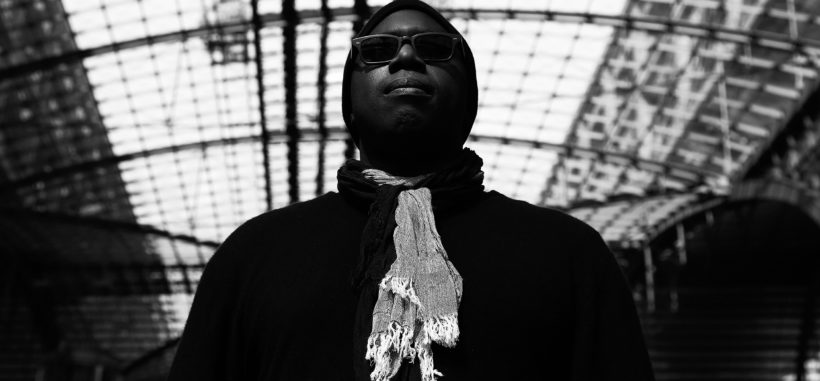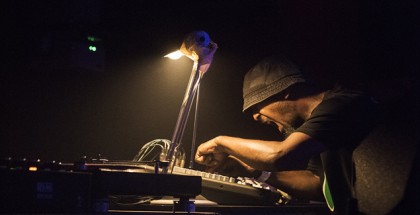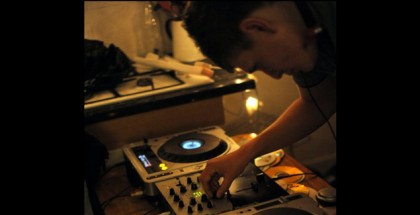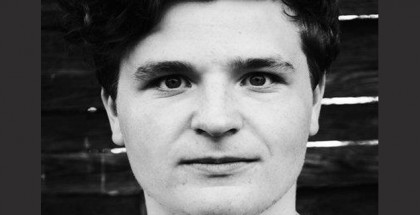In Conversation With: Fred P
Much like a Kerri Chandler kick or a Mr. G ride, a Fred P chord progression is instantly recognisable.
Whether making music under Black Jazz Consortium, fp-oner, or any of his numerous other aliases, the Queens-born, Berlin-based producer Fred Peterkin has carved out an undeniably characteristic sound, through a calling card of warm, broody melodies, drenched in reverb and etherealism.
2019 will see him drop his eleventh album, a milestone most artists, commercial or underground, could only hope to reach. What’s more, Peterkin says he has three times that amount sitting on his hard drive, all yet to see the light of day. With such an extensive back catalogue, it’s no wonder the man favours all night sets when stepping behind the decks. That album will be the second release on his new label Perpetual Sound, an imprint designed to continue the conversation the now defunct Soul People Music initiated, housing both his own material and collaborations. The debut EP, Evolutions, released earlier this month, consisted of cosmic jazz house anthem ‘Paradise Essential’ featuring French multi instrumentalist Slikk Tim on keys, a stomping Mr. G remix and two beatless experimentations, which you can listen to in full below.
“Like-minds together, to raise each other’s consciousness…music can be medicine”, extols Peterkin’s biography. In both the music he produces and the way he plays it, there’s a spirituality in Fred’s manner that’s grounded in authenticity and a genuine desire to push the culture forward, and it’s this honesty that places him alongside the most revered names in electronic music.
In this interview, Fred recounts his formative years growing up in Brooklyn and the impact local station CD 101.9 FM and its freeform alternative jazz programming had on him. He heralds the freedom to express, which life in Berlin affords him now, and explains the painstaking process that goes behind making those phenomenal chord progressions.
What became strikingly clear from my conversation with Fred is his humility, in every utterance expressing both a keen willingness to be continuously learning and honing his craft, and an inherent gratitude for the opportunity to be able to express his vision. Couple that with an incredible work ethic that sees him cooped up in the studio ten hours of every day – although you get the feeling it’s actually more like a mission or a pilgrimage than a standard day at the office – and you have an artisan who is truly at the top of their game.
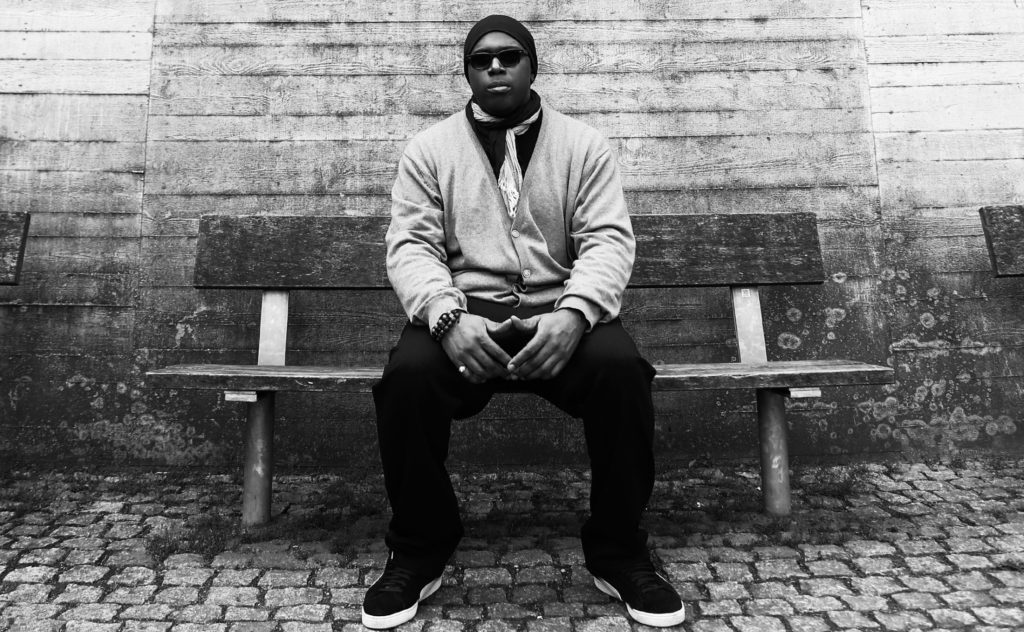
So let’s talk about the new label, Perpetual Sound. What was the motivation behind this one? Was the idea to create something stylistically different to Soul People Music?
Totally, yeah. This is actually a completely different scenario. With Soul People Music, the way I like to look at it, it was a bit of a growing process. I was brand new with that, I was coming out at the beginning of the digital age because it started off as a digital label and then became physical around 2007, but started in 2005. I did a lot of releases through that, but it was more of an education process because I didn’t know that much about the business and went through all the growing pains of that and just a year or so ago, my distributor closed. This was right after I did the second Incredible Adventures of Captain P album, Escapism, and it ended in a way where I felt I needed a fresh start and I didn’t exactly know how I was going to go about that. But I did know that what I wanted to do moving forward was something that wasn’t just solely based on me, being the sole artist on the label. I wanted to do something more collaborative, work with other artists and spread it out genre-wise – enough that would make sense with the narrative that I would like to put together. The concept behind Perpetual Sound is: sound is perpetual, it’s consistent, it never stops.
You’re prolific on your own, you’re able to bang out albums quite readily. So how do you approach the collaboration process?
It came about naturally. Let’s take Minako for example. I met her in 2009 on my first trip to Japan and we kinda hit it off. She let me know that she sang and we just developed a friendship from there and began working together. That’s how she came to appear on almost all of my albums. She’s amazing. But if we fast forward to Slikk Tim, I was basically looking at what some of my limitations are. I mean, I’m great at chord progressions and finding interesting chords, but I’m a terrible bass player so when putting together some new material I became frustrated. I put a call out there for bass players and a friend of mine put me in contact with Slikk Tim. We talked and he was down to try some stuff and from that moment we did a lot of work together. He’s featuring heavily on my next album. In my opinion he’s a virtuoso – he can play bass guitar, keys, sing, he does everything and he’s an amazing talent. He has a project called Gary Gritness which is pretty awesome, and hopefully we’ll be releasing some of his music on our label later on.
There’s something very particular about a Fred P chord progression, melancholic yet optimistic. ‘Mystery of Fantasy’ on the new EP is a prime example. How do you technically achieve that?
Very painstakingly [laughs]. It depends man. There’s an infinite amount of combinations but there’s a finite amount of ways to get particular voicing. I’m not a classically-trained keyboard player by any means but I know what I feel and I sit in the studio for hours just finding my way around a keyboard until I find that space, like ‘That, that’s what I’m trying to articulate’. It’s one key at a time until I find that space.
https://www.youtube.com/watch?v=XLG-OhCFH0c
Do you have a formula you tend to use?
Not particularly. The thing is, every song is different. Even if there are similarities, the process to get to it is different. I look at it the same way as digging for records to play a set. Every song has its own energy, its own vibe, but the person playing it will play it in a way that is singular to them. So when putting together a tune, it’s the same kind of process. You know where the finish line is, but how do you get there? The journey is what actually creates the song, that’s what makes it special.
Your various aliases seem to express mostly the same feeling but through different rhythms, different grooves. How do you distinguish those different identities in your mind?
It’s a mood thing. Fred P stuff is pretty straightforward. If I’m doing a remix or a reshape, I take the material that I’m inspired by and then reinterpret it as if it were my own tune, whereas Anomaly is pretty stripped back and functional for the dance-floor. There’s a whole catalogue of Anomaly music that I just play in the club that’s never been released. So when an Anomaly record does surface, it’s because it’s like ‘Okay, this is more than just a DJ tool, there’s an actual tune here’. The FP197 stuff is just me doing weird, leftfield stuff with a dance floor perspective, and Captain P is just me reminiscing about growing up in New York, what those influences are musically and how I feel nostalgia about certain things. For example the Escapism album, I was basically musing about walking around New York back in the ’90s and what that sounds like, what the influences were like. So that album was about getting out of that, travelling the world and everything. It’s usually just me musing on memories, so the sounds will come across emotionally as different moods.
So when you sit down in the studio do you tell yourself, ‘Right, today I am going to be Black Jazz Consortium or FP-Oner’? Or does it come out at the end of your track, like a reverse engineering?
Nah man, I never know. Let’s say for example I’m working on my next album and that had a focus, but midway through that focus changed and then again. I guess you’re correct, it’s more of a reverse engineering thing because I don’t know what it is until it’s done. But the idea is to always consistently stay in the studio and whatever is there, record it. Just get it out. I don’t put a lot of emphasis on ‘I’m going to make this, or I’m going to make that’, I’m just going to make something. A lot of cases where I go in with the idea that I’m going to make this type of track, usually it comes out completely opposite. Let’s say I want to do a house banger, I’ll end up with an ambient track. I just let go of anything and do what comes.
There’s a transcendent quality to your productions, it’s clearly not just functional music for the club. Is that something you try to embed, or does it just come through naturally?
Well I don’t want to sound crazy philosophical or anything like that, but it’s just the basic reality that the thing that you do most consistently for as far back as you remember will be something that you believe in, so for me that’s music. For my entire life as far as I can remember – and I’m going back to when I’m a little child – music has been the consistent thing that has not ever left or changed. That being true, what I need to know about it is what it is and why does it have such an influence on my life and motivations.
So when you look at what sound is, sound is basically energy. Sound waves move through the air, they reverberate, they touch everything, they’re in and out of everything. It’s energy that you need to live, and that has a profound effect on how I look at life. It teaches me to be fluid and keep my mind open and learning. You can learn until you leave this planet, so how that comes across is that I’m just being myself and expressing that.
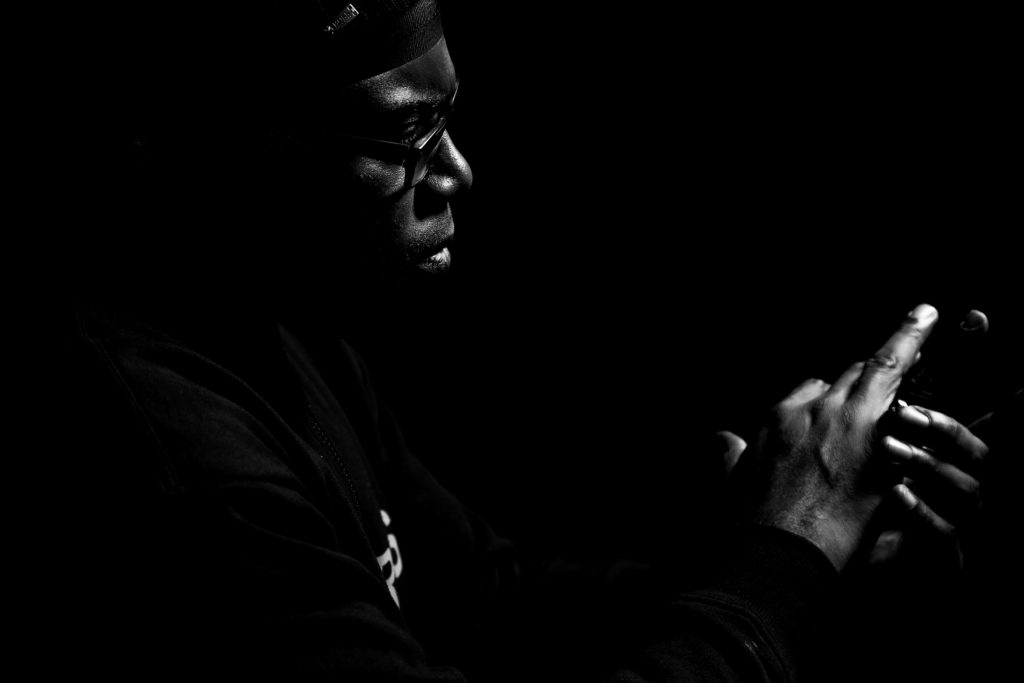
For my entire life as far as I can remember…music has been the consistent thing that has not ever left or changed.
I think the role of an artist in any form is to contribute, to be themselves and to express what they see and hear to people so that way they can have perspective. My focus has always been the same, that you’ll be able to enjoy the type of music I make in or out of a club. I think you spend more time out of a club so it would be advantageous to me if I want to communicate these thoughts and feelings to make my music more multi-purpose. Not so much in the sense that I’m aiming at that goal, it’s more like in general. This is something you can listen to while you do your laundry, or going to the supermarket, or meditate to or whatever. This is coming from a person to hopefully reach other people that may resonate with these frequencies. To me it’s all energy.
I guess it’s like going to the gym to get the stress of your working day off your mind. Do you think you’ve come to depend on writing music as a process?
Music’s my life man. I spend 10 hours a day in the studio when I’m not on the road. My next album will be my 11th album, but I have three times that on my hard drive. I actually live this thing. I would agree with you, yes. I need to express my creativity at least once a day, and usually that session will go for about 10 hours average. Since I moved to Berlin seven years ago, I recognised the privilege of doing so because I was in a position where I could do that and I’m very grateful to be here because that was difficult to do in New York. And it would be difficult to do anywhere else, it’s just a different way of life. I take full advantage of it every single day. There’s not a day that goes by that I’m not either writing something, editing something, doing some processing, there’s always something to do. I’m still trying to figure out ways to get these things out. Although I’m known for deep house and techno, I also write ambient music, I write acid jazz, I write really weird stuff that doesn’t really have a name.
Jazz clearly has a major influence on you.
Oh yeah man, I love jazz. Back in the day, there was this radio station called CD 101.9 and I guess it would be considered elevator music, but they played amazing acid jazz and alternative jazz and I used to listen to this radio station for years. Sadly they went off the air about 10 years ago, but it was a huge influence on me because aside from the pop and R&B stations, they played a lot of great electronic stuff sitting right next to proper jazz music. It was different from everything else that was happening on the radio and that was what made it so influential for me. I’ve always been left of centre, I always want to hear what’s different because what’s popular is apparent. It’s like ‘Okay, we know that this is the thing that everyone is doing, but what’s the thing that no one is doing?’ and CD 101.9 was that station.
Have you ever considered putting a band together?
Well I’m kind of working on that now. I began playing live last August at MUTEK in Montreal and even though that was definitely a dance-floor oriented thing, it opened my mind to the possibilities because I’d never done it before. Like if I changed things round, made it a bit more fluid, it’s possible to make some other music and I’m in the process of figuring out how to do it and make it make sense. So yeah something like that is on the horizon, but it’s how and what would be the narrative is the question.
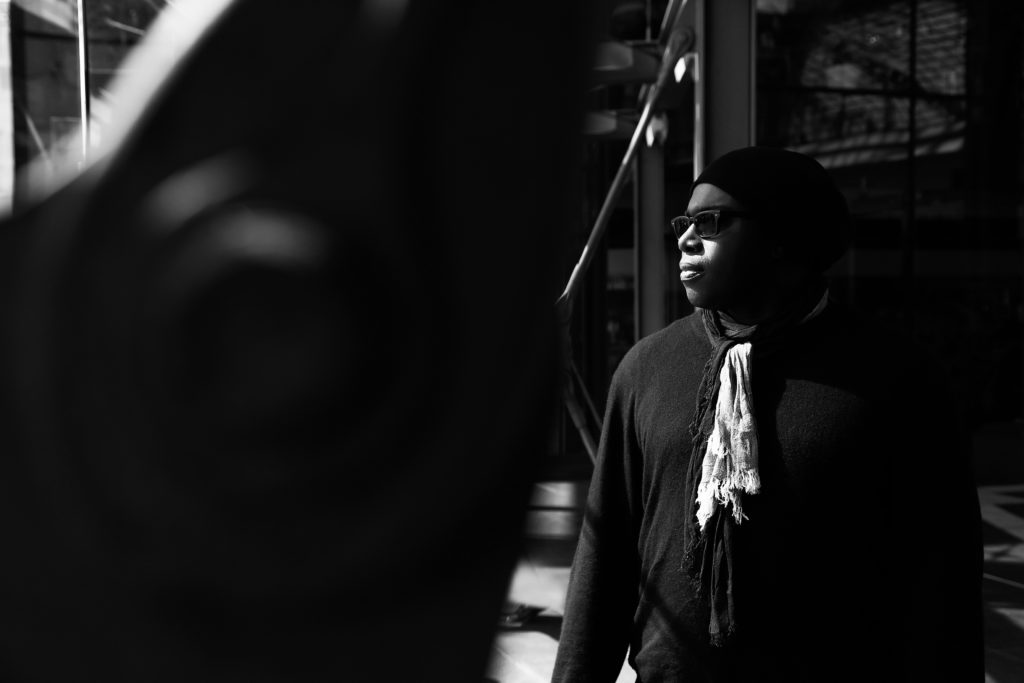
I always want to hear what’s different, because what’s popular is apparent.
You’ve got a fond appreciation for the album format. Do you tend to approach most projects conceptually, or like with the aliases, do you basically look back at a period of your life and then form a concept around that?
Yeah I would say that [the latter]. I come from the album generation and to me an album is like a book in the way that it’s a story, it has peaks and valleys and that’s always interesting. A lot of my influence for doing albums comes from the late ‘90s when I used to walk down the West Side Highway before it was beautiful and a tourist attraction. It looked like a gritty parking lot next to the river. And I would listen to albums end to end, from 46th Street all the way down to the World Trade Centre, just listen and walk. I realised that I had to get into a stream of consciousness like that and identify with a particular artist’s work and have a feeling about its importance, because it was important to me at that moment.
When I started to get deep into the production, I felt like every track should be able to converse with the next, but it doesn’t have to be a call and response thing, it can just be ebbs and flows. When I did the very first Black Jazz Consortium album Reactions of Light, that was me expressing that and I realised this resonated with my need to create. It gives it focus to create in a thematic way. For example the first Captain P album, that thing is like 22 tracks long, it’s like watching a movie, for real, and people tell me ‘Oh, when I get into that, I get into this place or that place’ and that’s the whole point. To provide a set of frequencies that are sympathetic to whatever your situation is.
Outside of electronic music, what are you listening to at the moment?
Album-wise not so much. But the people that I like to listen to… Robert Glasper, The Trio or The Experience. It doesn’t matter to me, anything he does I think is extremely great. I’m really into Thundercat, he’s a really great vocalist and his bass playing is from another planet. I get into some older stuff like Return to Forever just because it’s so out there. I also like Kamasi Washington, Yussef Kamaal, Henry Wu.
I have a friend who I’m doing a project with called Simbad, he sends me a lot of music and this guy consistently blows my mind and keeps me on my toes. I get a lot of music from aspiring artists that I find interesting as well and I play on my show. Vince Watson just put out an album called Life is Beautiful that I find incredible. It’s not so much techno but more jazz-influenced. I’ve been listening to The Midnight Hour by Ali Shaheed Muhammad and Adrian Younge as well – they play all the instruments themselves but it sounds like samples which is really cool.
I love dance music and I love music of all kinds. It doesn’t matter what it is, if there’s something interesting then I’ll enjoy it. That keeps me pretty open, because right now for me dance music hasn’t had that quantum leap yet. With the technology we have now, dance music should be somewhere else completely. I understand that a lot of what is happening with dance music is that most people will make a track to be noticed, as opposed to the artistic need to express. You’re sharing a part of you with your fellow beings, whether that’s about entertainment, education, or what have you. The role of the artist has become convoluted because you can put a track on SoundCloud and become famous.
Dance music doesn’t have to be purely utilitarian.
It can totally go to a whole other degree. If you look back to jazz music, that was the dance music of its day. So now we’re at this point where we have far too many tools to make it, so there’s really no excuse.
It’s a broad industry now though, there’s a refreshing breadth.
Absolutely, it’s wide open. It’s never been like this in the history of dance music. I remember in the beginning there was only disco, then from disco came house. Then that spun off into tribal, deep… it went global. It’ll all change again in the next five or ten years. But the basics about being an artist will always remain the same. What is your intent? What are you sharing? This is what will resonate over time, otherwise you’ll get lost in the noise.
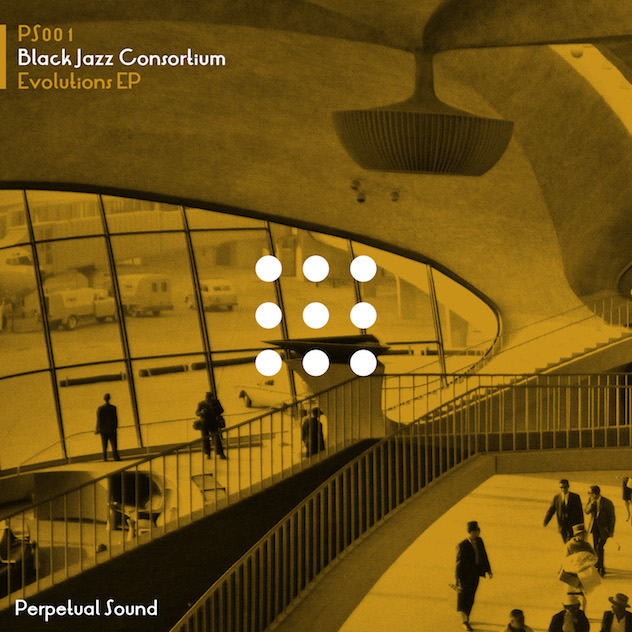
What’s next for Perpetual Sound?
002 will come in the new year – a collaboration between myself and Deetron which is definitely dance-floor focused. Then an album which is currently in production, it’s taking a bit of time to get together but it’s coming along nicely. I’m having a really good time working on it because I’m slightly out of my depth, which is where you should be if you intend on taking a step forward. I’m also putting together a Soul People Music compilation and releasing some music from Simbad and a couple of other artists which I won’t mention yet.
I see you’ll be spending New Years Eve in Brazil – not a bad place to bring in the new year. Have you been before?
Yeah, I’m really excited as I had a great time last time I was there. I’m working with a really good crew that I’ve known for some time called Troop. They put on true underground parties, and I feel free to play whatever I want. Brazil has such a rich musical history and the people are in tune with that and what’s happening now. Florianopolis is an incredibly beautiful place too, I mean they have 52 beaches. That’s a lot of beach man! The people are warm, very friendly and optimistic in spite of the political situation there.
We need to get you out to South Africa. Was the Boiler Room in Cape Town the last time you were out here? That was a special show.
Yeah, that was a couple of years ago now. Loved it. It was an amazing experience. I never thought I would go to Africa in my lifetime period. To feel comfortable and to be heard was awesome. I would open up and pull out some music that nobody knows about just for this situation, absolutely… I’d do a backflip to be out there again. For that type of occasion I would put together a CD of original music to share with people who really appreciate it. Not too many people do that any more. At the start of my career, I would have a stack of CDs at every show just to say thank you for coming to listen. I’m happy to return to that practice for SA for sure.
The debut release on Perpetual Sound, Fred’s Evolutions EP is out now.



